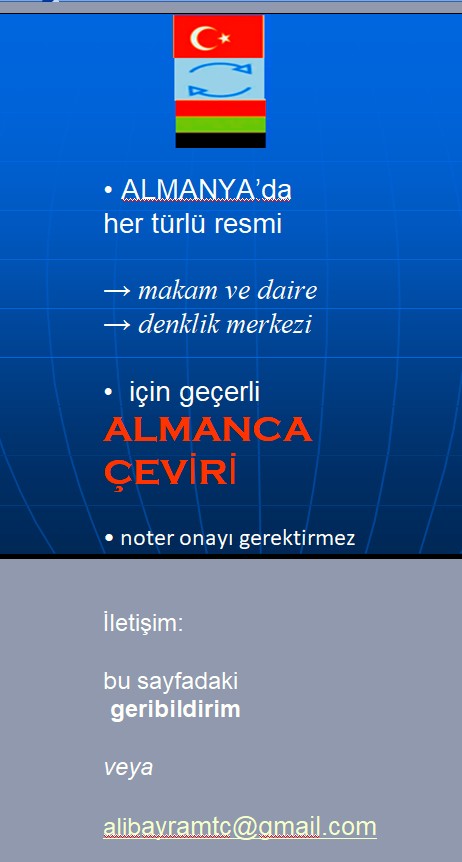corrosion
İngilizce - Türkçe
sıklık sırası: 9269ad / noun 1
ad / noun 2 – technical
ad / noun 3 – technical
CORROSION = [kı'roujın] noun
aşınma, aşındırma, çürüme, paslanma
İngilizce örnek : Some metals are more resistant to corrosion than others.
Türkçe çevirisi : Bazı metaller paslanmaya diğer metallerden daha dayanıklıdır.
CORROSION
Chemical Corrosion:
Corrosion reaction: A chemical process where a material deteriorates due to a reaction with its environment.
Corrosion inhibitor: A substance added to a solution or environment to prevent or reduce the rate of corrosion.
Corrosion product: The compounds or substances formed as a result of the corrosive reaction.
Corrosion-resistant: Material or substance designed to resist or slow down the process of corrosion.
Corrosion rate: The speed or rate at which a material deteriorates due to corrosion.
Corrosion chamber: A controlled environment used to study the effects of corrosion on materials.
Corrosion mechanism: The series of steps or processes leading to material degradation due to chemical reactions.
Corrosion test: An experiment or procedure conducted to assess the susceptibility of a material to corrosion.
Corrosion control: Methods or techniques employed to prevent, mitigate, or manage corrosion.
Corrosion monitoring: Continuous or periodic assessment of material degradation due to corrosive processes.
Metal Corrosion:
Metal corrosion: The degradation of metals due to chemical or electrochemical reactions with their environment.
Metal corrosion resistance: The ability of a metal to withstand degradation when exposed to corrosive environments.
Metal corrosion product: Compounds or substances formed when metals react with their surroundings.
Metal corrosion rate: The speed at which a metal deteriorates due to corrosive processes.
Metal corrosion test: Experiments or evaluations conducted to determine a metal's susceptibility to corrosion.
Metal corrosion protection: Techniques or treatments used to shield metals from corrosive agents.
Metal corrosion prevention: Measures or strategies implemented to avoid or reduce metal degradation due to corrosion.
Metal corrosion analysis: Examination or study of metal surfaces and structures to detect signs of corrosion.
Metal corrosion control: Procedures or protocols established to manage and minimize metal corrosion.
Metal corrosion behavior: The observed reactions and changes in metals when exposed to corrosive conditions.
General and Specific Contexts:
Rust corrosion: The specific type of corrosion that leads to the formation of rust on metals, primarily iron.
Pipeline corrosion: The degradation of pipelines due to chemical reactions, leading to structural weaknesses.
Atmospheric corrosion: Corrosive processes influenced by atmospheric conditions, such as moisture and pollutants.
Saltwater corrosion: Corrosion accelerated by exposure to saltwater or saline environments.
Microbial corrosion: The deterioration of materials caused by the metabolic activities of microorganisms.
Galvanic corrosion: A type of corrosion resulting from the electrochemical interaction between different metals.
Localized corrosion: Corrosive processes that occur in specific areas rather than uniformly across a material's surface.
Uniform corrosion: Corrosion that affects a material uniformly across its entire surface area.
Electrochemical corrosion: Material degradation resulting from electrochemical reactions between materials and their environment.
Accelerated corrosion: Corrosion processes that occur at a faster rate than usual due to specific conditions or factors.
Industrial and Practical Applications:
Corrosion control measures: Strategies or practices implemented to prevent or reduce corrosion in industrial settings.
Corrosion-resistant coatings: Protective layers or treatments applied to surfaces to prevent or slow down corrosion.
Corrosion engineering: The branch of engineering focused on understanding, preventing, and controlling corrosion in various applications.
Corrosion monitoring systems: Devices or systems designed to continuously or periodically assess corrosion levels in structures or materials.
Corrosion-resistant alloys: Metal mixtures designed to exhibit enhanced resistance to corrosive environments.
Corrosion testing standards: Established guidelines or protocols for conducting corrosion tests and evaluations.
Corrosion-resistant materials: Substances or compounds inherently designed to withstand or resist degradation from corrosive agents.
Corrosion mitigation strategies: Approaches or plans developed to reduce the impact or severity of corrosion in specific applications.
Corrosion inspection techniques: Methods or procedures used to evaluate and assess the extent of corrosion in materials or structures.
Corrosion prevention methods: Practices or interventions aimed at avoiding or minimizing the onset and progression of corrosion.
Environmental and Natural Contexts:
Soil corrosion: The degradation of materials, especially metals, due to interactions with soil components.
Water corrosion: Corrosive processes influenced by the chemical composition and quality of water sources.
Atmospheric corrosion testing: Experiments or evaluations conducted to assess the susceptibility of materials to atmospheric degradation.
Humidity-induced corrosion: Corrosion processes exacerbated by high levels of atmospheric moisture.
Acidic corrosion: Material degradation resulting from exposure to acidic substances or environments.
Alkaline corrosion: Corrosive processes initiated by exposure to alkaline substances or conditions.
Corrosion-resistant plants: Plant species known for their ability to thrive in environments with high corrosion potential.
Corrosion-resistant organisms: Organisms capable of surviving and thriving in corrosive or harsh environments.
Corrosion in marine environments: Material degradation accelerated by exposure to seawater or marine conditions.
Corrosion in industrial settings: Material degradation occurring within manufacturing, processing, or production facilities.
Miscellaneous Collocations:
Corrosion analysis: The examination and evaluation of materials to identify signs, causes, and extent of corrosion.
Corrosion assessment: The process of evaluating materials or structures to determine their susceptibility or resistance to corrosion.
Corrosion consultancy: Expert advice or guidance provided on issues related to material degradation and corrosion prevention.
Corrosion diagnostics: Procedures or techniques used to identify, analyze, and diagnose corrosion-related problems.
Corrosion education: Training, courses, or programs focused on educating individuals about corrosion principles and practices.
Corrosion prevention guidelines: Established recommendations or protocols for avoiding or minimizing material degradation from corrosion.
Corrosion research: Scientific investigations and studies conducted to advance knowledge and understanding of corrosion processes.
Corrosion solutions: Strategies, products, or methods designed to address and mitigate corrosion challenges.
Corrosion standards: Established criteria, specifications, or benchmarks related to corrosion prevention and control.
Corrosion technology: Innovative tools, techniques, or approaches developed for understanding, preventing, or mitigating corrosion.


